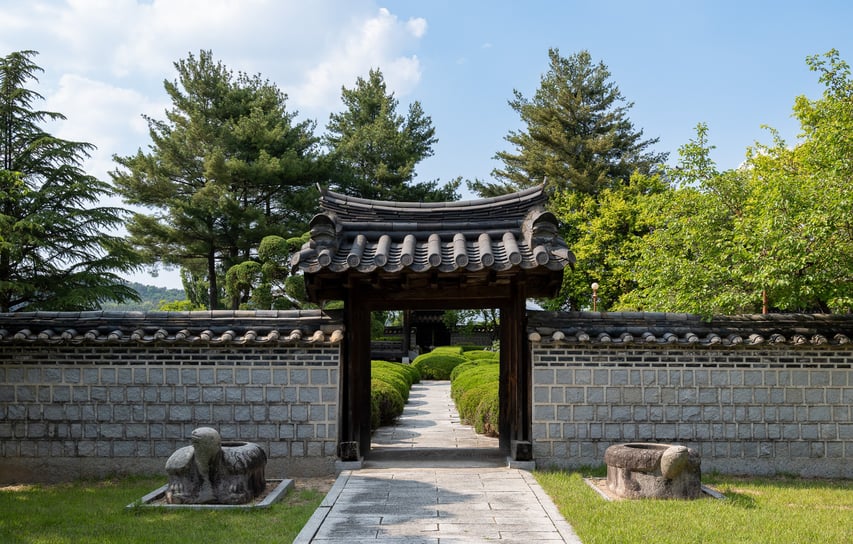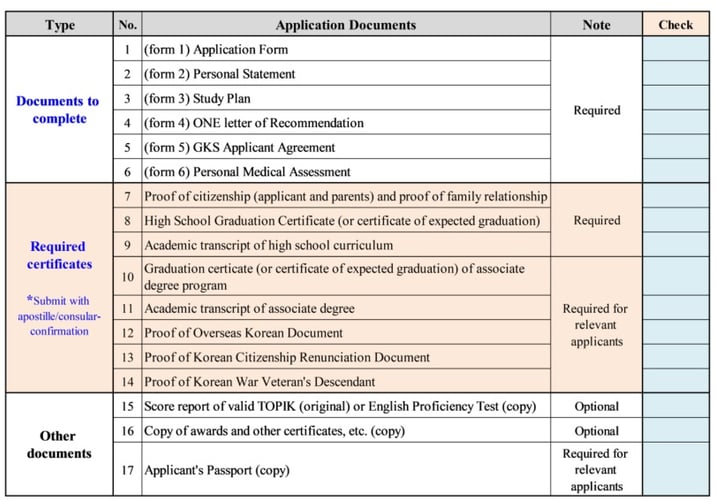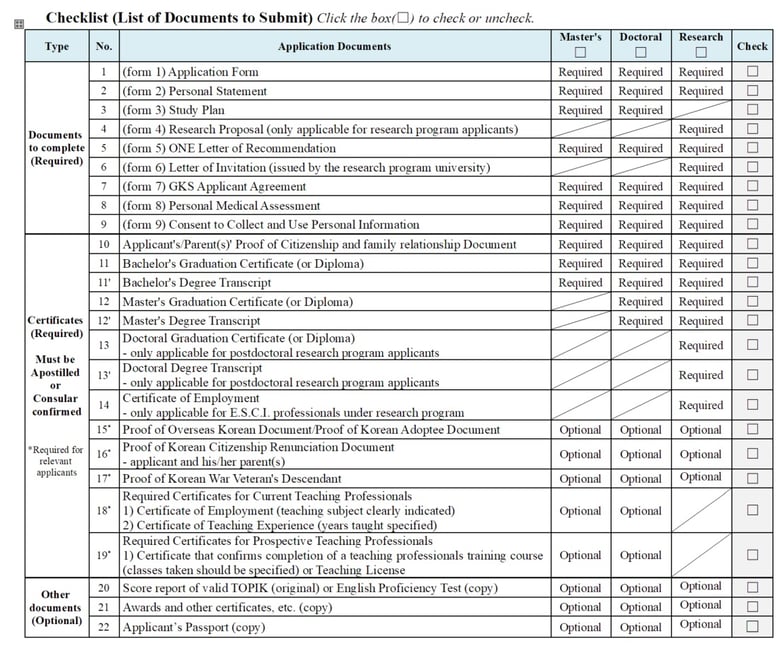How do I apply for GKS?
GKS
How to Apply
The application for the Global Korean Scholarship is open twice a year, once during fall for undergraduates, and once during spring for graduate studies. There are two different ways to apply, the university track and the embassy track (which will be covered here).
When applying through the embassy track, you will apply through the Korean embassy in your country. Always check the specific dates for the application with your local Korean embassy, since it might change from year to year. Depending on which country you are applying from, the number of available scholarships will vary drastically. For example, in 2020 27 applicants from Indonesia received the scholarship for graduate studies, meanwhile only 1 from Norway.
The application process consists of 4 steps.
Applicants submit their applications to Korean Embassies in their home countries. Each embassy selects the successful candidates among the applicants based on NIIED’s selection criteria.
The NIIED selection committee conducts the 2nd round of selection (interview) among candidates that pass the 1st round of selection.
The applications of the 2nd round successful candidates will be reviewed by the universities (that you've selected when submitting the application in the first step) for admission. The candidates must receive admission from at least one of the universities they applied in order to be selected as GKS scholars.
The announcement of finally selected GKS scholars (3rd round successful candidates of embassy track and 2nd round successful candidates of university track) will be made.
The Application
The GKS application form is quite extensive, so be sure to check it out ahead of time. Application forms from previous years can be found on the Korean embassy's website, so you can prepare early on.






Graduate Program Application Document List
Undergraduate Program Application Document List
Tips when Applying
In the application, you have the option to apply for three universities that you are interested in attending. During recent years, the amount of students getting their applications cancelled due to being rejected from all of their selected universities has increased for highly competitive institutions, such as Seoul National University, KAIST, Yonsei etc.
Keep this in mind when writing your application, it might be best to have at least one less competitive university among your options.
